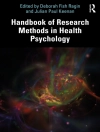‘Everyone knows that child abuse is morally wrong. David A. Wolfe goes beyond this to explore how and why it affects the development of children. This is the story professionals need to know to plan their helping strategy.’ —James Garbarino, Ph.D.Co-Director, Family Life Development Center, Cornell University
Child Abuse, Second Edition is devoted to a topic of major social and clinical significance. In this book, the author describes the different types of abuse and discusses the influence they have on development, including the emotional, cognitive, academic, and social consequences in childhood and adolescents. The book uses theory and research to convey the importance of multiple contextual influences that affect abuse and can be used to ameliorate it.
Table of Content
What Is Child Maltreatment?
Normal and Abnormal Child-Rearing Patterns
A Developmental Perspective of the Abused Child
Unraveling the Causes I
Theory and Background
Unraveling the Causes II
Multidimensional Influences
Prevention and Treatment Strategies
About the author
Dr. Wolfe holds the inaugural RBC Chair in Children′s Mental Health at the Centre for Addiction and Mental Health, and heads the CAMH Centre for Prevention Science. He is also Professor of Psychiatry and Psychology at the University of Toronto. Since 2007 he has served as Editor-in-Chief of Child Abuse & Neglect: The International Journal. He is a fellow of the American Psychological Association, past President of Division 37 (Child, Youth, and Family Services), and received a Diplomate in Clinical Psychology from the American Board of Professional Psychology (ABPP). He has provided extensive assessment and consultation to child protective services, schools, and the court with respect to issues of child abuse and violence.












